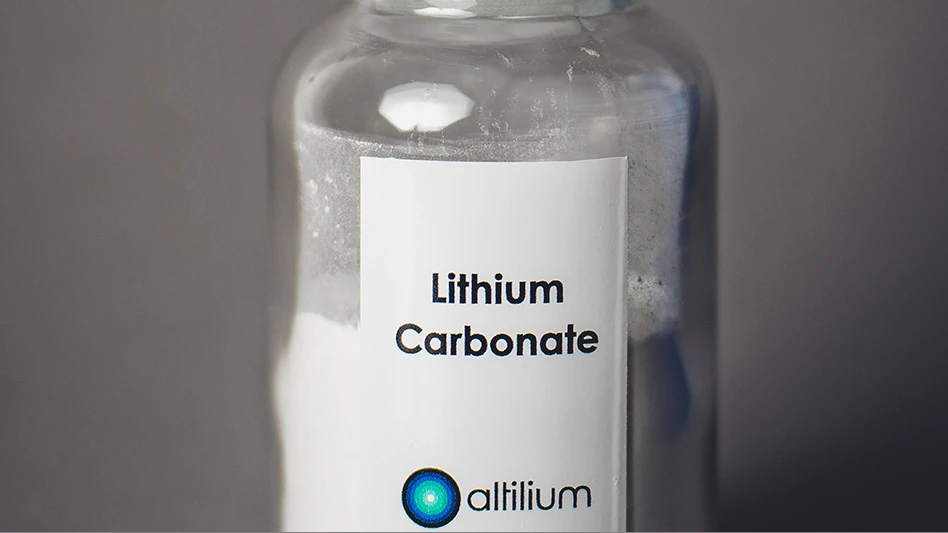
Photo courtesy of Altilium
Altilium, a United Kingdom-based company planning to invest in electric vehicle (EV) battery recycling, says it has signed a memorandum of understanding (MOU) with chemical company Helm AG of Germany and that firm’s U.K. subsidiary LevertonHelm Ltd.
Altilium describes LevertonHelm as a producer of lithium chemicals with a worldwide customer base. Under the terms of the MOU, the two companies will work together “to develop a sustainable domestic supply chain for lithium in the U.K.,” says Altilium.
“This is a great opportunity to support the U.K.’s efforts to secure such an important mineral for the energy transition,” says Stefan Berner Beltrán of Altilium. “By working together on alternative technologies, we can unlock the most value from domestic urban mining, aiming for greener and more efficient refining processes.”
Merve Cruz of Helm Energy Materials says, “Partnering with Altilium is a promising step forward in developing the Helm lithium portfolio. The planned alliance underlines our focus on specialized solutions and the much needed approach of recycling existing resources to support a sustainable supply chain for lithium, especially in Europe and the U.K.”
Per the MOU, LevertonHelm initially will qualify technical grade lithium carbonate recovered from end-of-life EV batteries and production scrap at Altilium’s recycling facilities in Devon, England. That is expected to lead to offtake and tolling agreements for the supply of recycled-content lithium in the U.K., “helping to meet the demand for sustainable and domestically sourced battery materials,” according to Altilium.
Altilium says its recently opened ACT2 recycling facility in Plymouth, England, has the capacity to recover lithium and other battery metals from black mass. In addition to producing cathode active materials (CAM) for qualification with automotive customers, the facility has been designed to produce high volumes of lithium, available for re-entry into the British supply chain, says Altilium.
The companies say their partnership also will help battery manufacturers in the European Union to comply with new EU battery regulations. As of August 2031, new EV batteries in the EU must contain at least 6 percent recycled-content lithium, with that figure rising to 12 percent by 2036.
Latest from Recycling Today
- Green Cubes unveils forklift battery line
- Rebar association points to trade turmoil
- LumiCup offers single-use plastic alternative
- European project yields recycled-content ABS
- ICM to host colocated events in Shanghai
- Astera runs into NIMBY concerns in Colorado
- ReMA opposes European efforts seeking export restrictions for recyclables
- Fresh Perspective: Raj Bagaria





